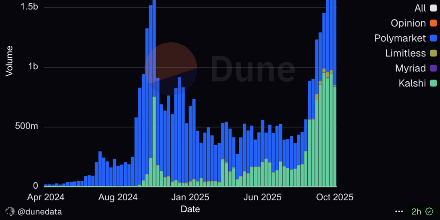Arizona Legislature Passes Bitcoin-Forfeiture Reserve Bill: Will the Governor Approve?
HB2324 lets Arizona build a Bitcoin forfeiture reserve, easing veto worries and setting a cautious crypto model.
Arizona lawmakers have approved House Bill HB2324, which, if Governor Katie Hobbs signs it, could become the state’s second law establishing a Bitcoin reserve. The bill creates a reserve fund for assets, including Bitcoin, seized through criminal asset forfeiture.
This legislative shift responds to prior vetoes by avoiding direct state investment in digital assets. Instead, the bill focuses on placing forfeited assets into a reserve fund, introducing a new approach to cryptocurrency regulation in Arizona.
Key Features of HB2324
HB2324 strictly creates a reserve for assets obtained through criminal forfeiture. Unlike previous efforts that aimed for direct state investment in digital currencies, this approach addresses concerns from the executive branch. Supporters contend this measured strategy could help the bill become law.
Residents and industry experts can review the bill’s text and legislative status on the Arizona Legislature’s official portal. By adopting a less aggressive approach, lawmakers hope to avoid earlier obstacles and establish responsible asset management.
Previously, attempts to create a Bitcoin reserve either failed or were vetoed. This version of the bill contains no provision for speculative cryptocurrency investments; assets come solely from law enforcement seizures during investigations.
This highlights Arizona’s continued experimentation with cryptocurrency governance. The legislation encourages innovation while addressing executive scrutiny from previous cycles.
Why This Bill Has a Better Chance
Arizona’s experience with Bitcoin legislation demonstrates both ambition and caution. Previous bills proposing direct state ownership of crypto rarely survived to become law. Analysts note that HB2324’s use of current forfeiture frameworks marks a meaningful change.
“Arizona passes it’s fourth bitcoin reserve bill. For the first three, it was one enacted, two vetoed. This one doesn’t involve investment per se (it creates a fund out of criminal forfeiture assets), so has a better chance of being signed by the governor.”Julian Fahrer posted
Given this background, the bill is more likely to secure executive approval. Focusing on seized assets puts Arizona ahead in regulatory oversight while digital assets increasingly intersect with banking and law enforcement nationwide.
If enacted, Arizona would join other states prioritizing measured, compliance-first digital asset adoption instead of riskier direct investments.
The final step is Governor Hobbs’ decision. Many observers expect her previous concerns, which led to earlier vetoes, to be minimized due to the structured approach of this bill. Still, technology advocates, law enforcement, and policymakers are watching carefully.
Arizona’s move mirrors a broader trend: states are integrating digital assets into fiscal operations while striving to build public trust. By relying on criminal asset forfeiture, HB2324 might provide a model for gradual, responsible integration of emerging technology.
Regardless of the outcome, the debate and legislative process will shape Arizona’s future cryptocurrency regulations.
Disclaimer: The content of this article solely reflects the author's opinion and does not represent the platform in any capacity. This article is not intended to serve as a reference for making investment decisions.
You may also like
Crypto Rebound Alert: What’s Next for Bitcoin, Ethereum, XRP and Solana Prices?
OracleX Global Public Beta: Restructuring Prediction Market Incentive Mechanisms with "Proof of Behavior Contribution"
OracleX is a decentralized prediction platform based on the POC protocol. It addresses pain points in the prediction market through a dual-token model and a contribution reward mechanism, aiming to build a collective intelligence decision-making ecosystem. Summary generated by Mars AI The content of this summary is produced by the Mars AI model, and its accuracy and completeness are still being iteratively improved.

Bitcoin is not "digital gold"—it is the global base currency of the AI era
The article refutes the argument that bitcoin will be replaced, highlighting bitcoin's unique value as a protocol layer, including its network effects, immutability, and potential as a global settlement layer. It also explores new opportunities for bitcoin in the AI era. Summary generated by Mars AI. This summary was produced by the Mars AI model, and the accuracy and completeness of its content are still being iteratively improved.

Bitcoin 2022 bear market correlation hits 98% as ETFs add $220M

